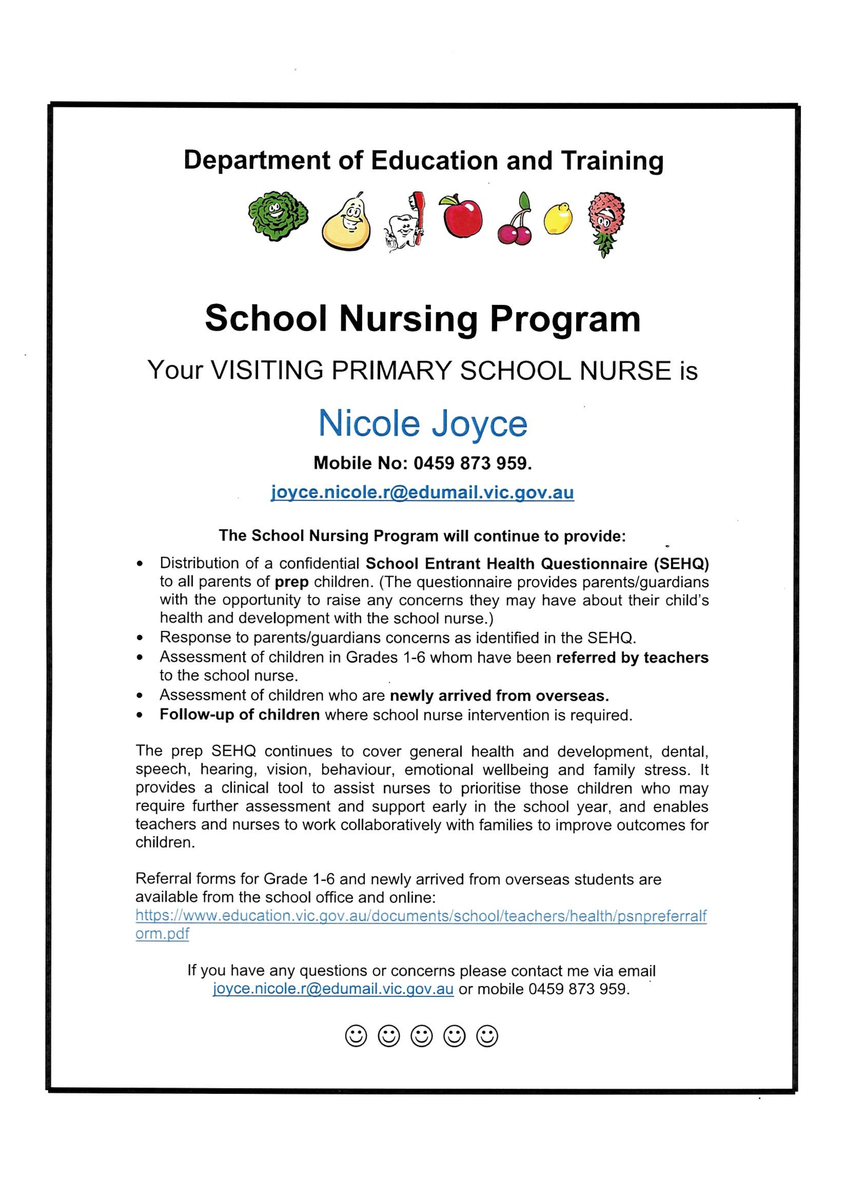School Nurse

The School Nurse has provided our school with the following resources regarding Vision and Hearing Concerns.
Please speak to your child’s classroom teacher if you have any questions or concerns.
| Eye Conditions |
The following may indicate the possibility of an eye condition or visual disability:
- One or both eyes drift inwards or outwards or are turned in or out.
- Frequent blinking or screwing up of eyes (peering) or child complains of not seeing clearly at a distance.
- Child covers one eye when reading, drawing or doing blackboard work.
- Child tilts head to an abnormal position when looking at something.
- Red eyes.
- Frequent watering of eyes or light sensitivity.
- Child complains of headache, blurring of vision, seeing double, burning or itching of eyes during or after close work.
Children showing any of the above symptoms can be referred to the school nurse for an assessment.
Note: If a child’s brothers or sisters have glasses there is an increased chance of the child having a similar visual condition.
| Hearing Conditions |
The following may indicate the possibility of hearing difficulties:
- Inattention, daydreaming, lack of interest in school work, abnormal behaviour including aggressiveness, shyness or withdrawal.
- Poor progress in school work, especially poor reading and phonic ability.
- Frequent errors in recording of dictation work, such as spelling. Consonants in particular may be omitted or incorrectly recorded.
- Difficulty in the use or understanding of spoken language. It may sometimes be difficult to determine whether the child has actually heard what has been said, or whether she/he has the language background to understand. However, frequent need for repetition and mistakes in carrying out simple instructions may suggest a hearing loss.
- Abnormal speech articulation or quality. The voice may be monotonous or speech may lack clarity.
- Turning of the head to one side when listening.
- Lip-reading. Quite often children with a hearing loss compensate by lip reading, even though they may not have had formal instructions in the technique. Watch for children who appear not to hear unless they are in a face-to-fact situation.
Children showing any of the above symptoms can be referred to the school nurse for an assessment.
Note:
Children who were born ‘at risk’, for example, where there is a history of the mother suffering a virus infection such as rubella during pregnancy, difficult childbirth, prematurity and low birth weight, or cerebral palsy, even if mild, are much more likely to suffer from nerve deafness than other children. Also ‘at risk’ are children who have suffered from severe infections, meningitis or a head injury.

